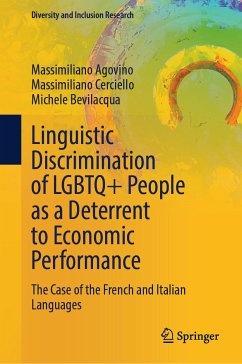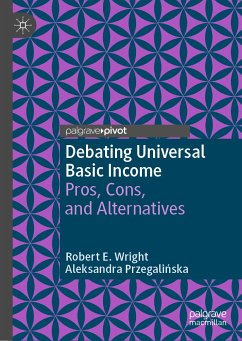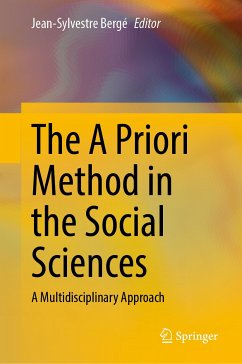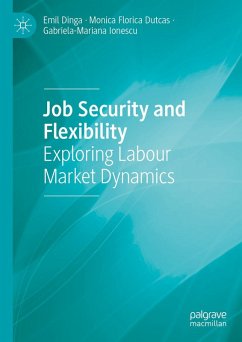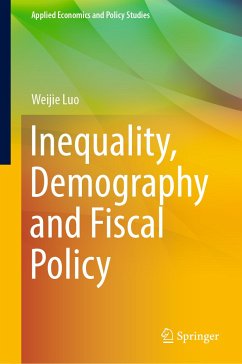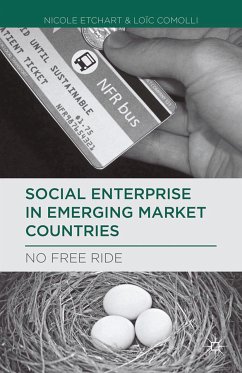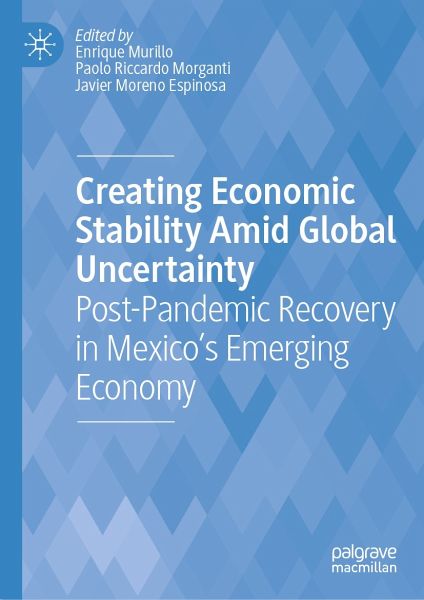
Creating Economic Stability Amid Global Uncertainty (eBook, PDF)
Post-Pandemic Recovery in Mexico's Emerging Economy
Redaktion: Murillo, Enrique; Moreno Espinosa, Javier; Morganti, Paolo Riccardo
Versandkostenfrei!
Sofort per Download lieferbar
128,95 €
inkl. MwSt.
Weitere Ausgaben:

PAYBACK Punkte
64 °P sammeln!
COVID-19 impacted economic activity in a way that hurt households, businesses, industries, and governments. What followed immediately was a period of high uncertainty, and what's to come is still unknown. Economists have a lot to learn from this point in history, as different countries have handled this very differently from others. This book journeys through what one emerging economy has done to attempt recovery following immense disruption: Mexico's recovery following the pandemic.This volume offers empirical studies that trace the post-pandemic recovery period in Mexico, providing insight i...
COVID-19 impacted economic activity in a way that hurt households, businesses, industries, and governments. What followed immediately was a period of high uncertainty, and what's to come is still unknown. Economists have a lot to learn from this point in history, as different countries have handled this very differently from others. This book journeys through what one emerging economy has done to attempt recovery following immense disruption: Mexico's recovery following the pandemic.
This volume offers empirical studies that trace the post-pandemic recovery period in Mexico, providing insight into what this emergent economy went through and did after 2021. The first part of the book examines macroeconomics, such as tax collection, and microeconomics, such as household income. These chapters draw on policy and the actions driving the economic recover in this emergent economy. The second half of the book focuses on what organizations can do to improve internal governance as well as market success.
Full of new conceptual and empirical studies, the book explains what it looks like to rebuild an emerging economy. It will appeal to economists, economic scholars, and policymakers trying to make sense of the best ways to move forward following intense period of economic instability.
This volume offers empirical studies that trace the post-pandemic recovery period in Mexico, providing insight into what this emergent economy went through and did after 2021. The first part of the book examines macroeconomics, such as tax collection, and microeconomics, such as household income. These chapters draw on policy and the actions driving the economic recover in this emergent economy. The second half of the book focuses on what organizations can do to improve internal governance as well as market success.
Full of new conceptual and empirical studies, the book explains what it looks like to rebuild an emerging economy. It will appeal to economists, economic scholars, and policymakers trying to make sense of the best ways to move forward following intense period of economic instability.
Dieser Download kann aus rechtlichen Gründen nur mit Rechnungsadresse in A, B, BG, CY, CZ, D, DK, EW, E, FIN, F, GR, HR, H, IRL, I, LT, L, LR, M, NL, PL, P, R, S, SLO, SK ausgeliefert werden.



